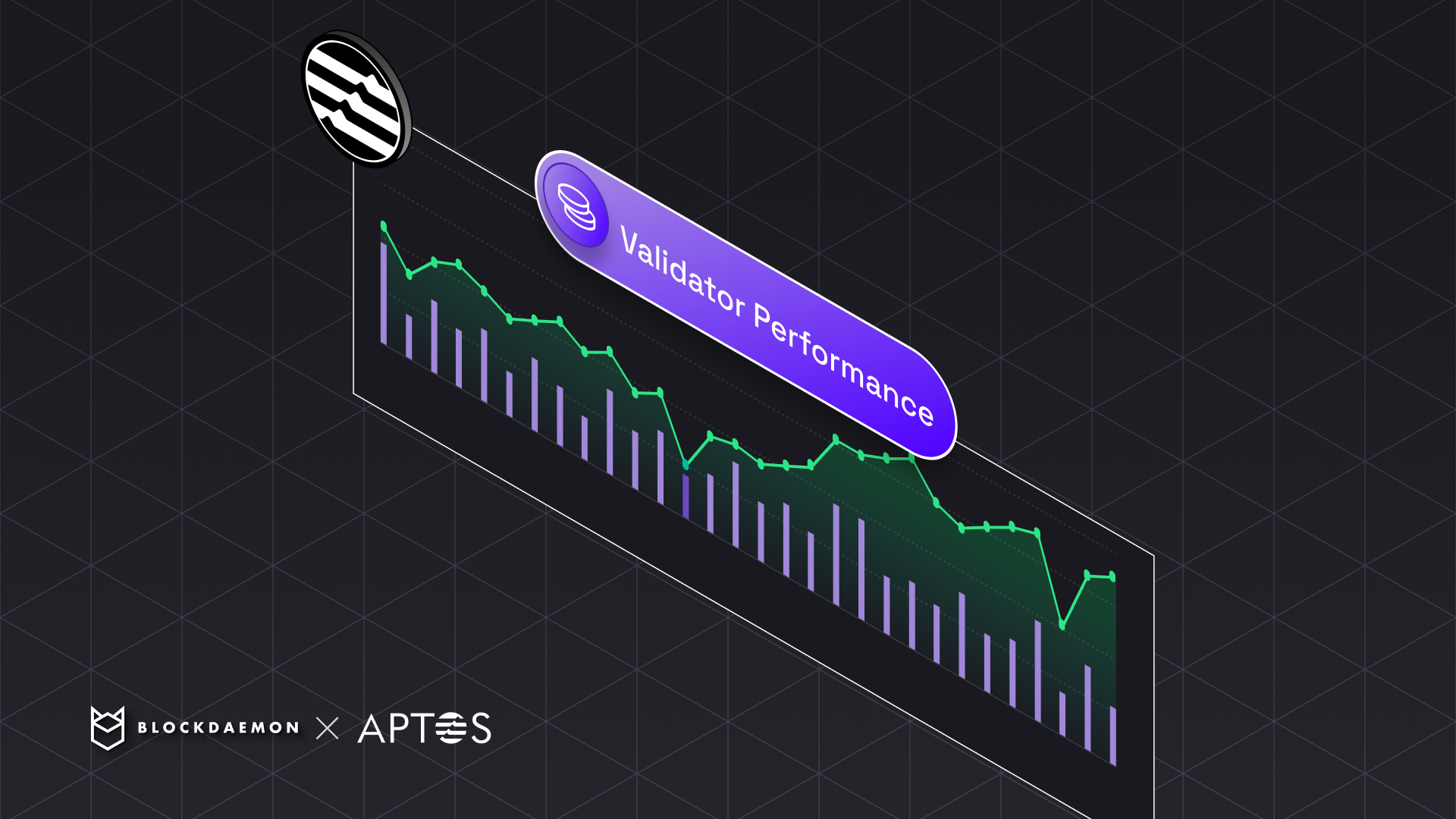Get Started with
Blockdaemon Today!
Contact us to learn how we can help you power your blockchain business.



Discover the four pillars institutions should use to evaluate Aptos validators: fees, performance, security, and ethos—with Blockdaemon as your trusted partner.

Proof‑of‑stake blockchains are meritocracies. Institutional token holders delegate to validators who earn trust through real performance, security, and community alignment. In return, both stakers and operators share in network rewards.
But beyond rewards, the right validator partner helps safeguard your capital, maintain your reputation, and support the health of the network. Institutions should look for partners who prove reliability through strong performance, demonstrate strict security practices, and stay aligned with the community they serve.
At Blockdaemon, we use a four‑pillar framework, fees, performance, security, and ethos, to guide institutional choice across any Proof‑of‑Stake network.
Every Proof-of-Stake validator sets a fee. This fee covers the cost of running the validator node. These costs can include hardware, maintenance, power, and operator time. Fees help keep the validator up-and-running.
On Aptos, for example, pools set an operator commission that’s taken from delegators’ rewards. Rewards are calculated and distributed each epoch (~2 hours) and auto-compound into an institution’s stake, so commission, validator performance/uptime, and compounding determine net rewards. Blockdaemon currently operates an Aptos Community Validator, offering a 0% fee, maximizing rewards for delegators without hidden trade-offs
Validator Performance
Performance comes from round‑the‑clock availability, tight monitoring, and operational excellence. Missed proposals or lagging nodes mean missed rewards. On some networks, they can also trigger penalties. Either way, performance is the difference between theoretical Protocol Reward Rate (PRR) and what institutions receive in rewards.
On Aptos, Blockdaemon participates with a 99.99% reward performance. This is calculated as a percentage of rewards secured by the validator out of the maximum reward earning opportunity. Blockdaemon’s performance also consistently delivers above-network rewards across other leading protocols, such as Ethereum and Solana.
For institutions, security is paramount. Key custody, access controls, and change management should meet institutional standards.
Aptos is helpful here because it formalizes key roles, owner, operator, and voter, and supports native key rotation. Strong validators, such as Blockdaemon, fully adopt that model, separating duties, and acting as a non-custodial validator.
Blockdaemon is also ISO 27001 certified–the gold standard for information security management systems–ensuring sensitive data is managed and secured through structured controls. Blockdaemon has also successfully completed a SOC 2 Type II compliance examination.
When institutions stake, they’re also voting for a steward of the network. The best validators show up beyond block production. They participate thoughtfully in governance, and run public infrastructure that makes the ecosystem better for everyone.
In September 2025, Blockdaemon launched an Aptos Community Validator, with 0% commission, and designed to maximize rewards for delegators while strengthening the APT ecosystem.The Aptos Community Validator isn’t just about 0% commission pool, it’s about a deliberate investment in the growth of the Aptos ecosystem and designed to strengthen the network while maximizing rewards for delegators.
By evaluating fees, performance, security, and ethos, and by applying those lenses to a live network like Aptos, institutions can standardize diligence across PoS and choose a partner such as Blockdaemon who champions a security-first approach, minimizes operational overheads, and delivers dependable rewards.
If you’d like to compare operators or walk through network‑specific benchmarks, our team is happy to help. Book a call with Blockdaemon’s team of experts.
Contact us to learn how we can help you power your blockchain business.


